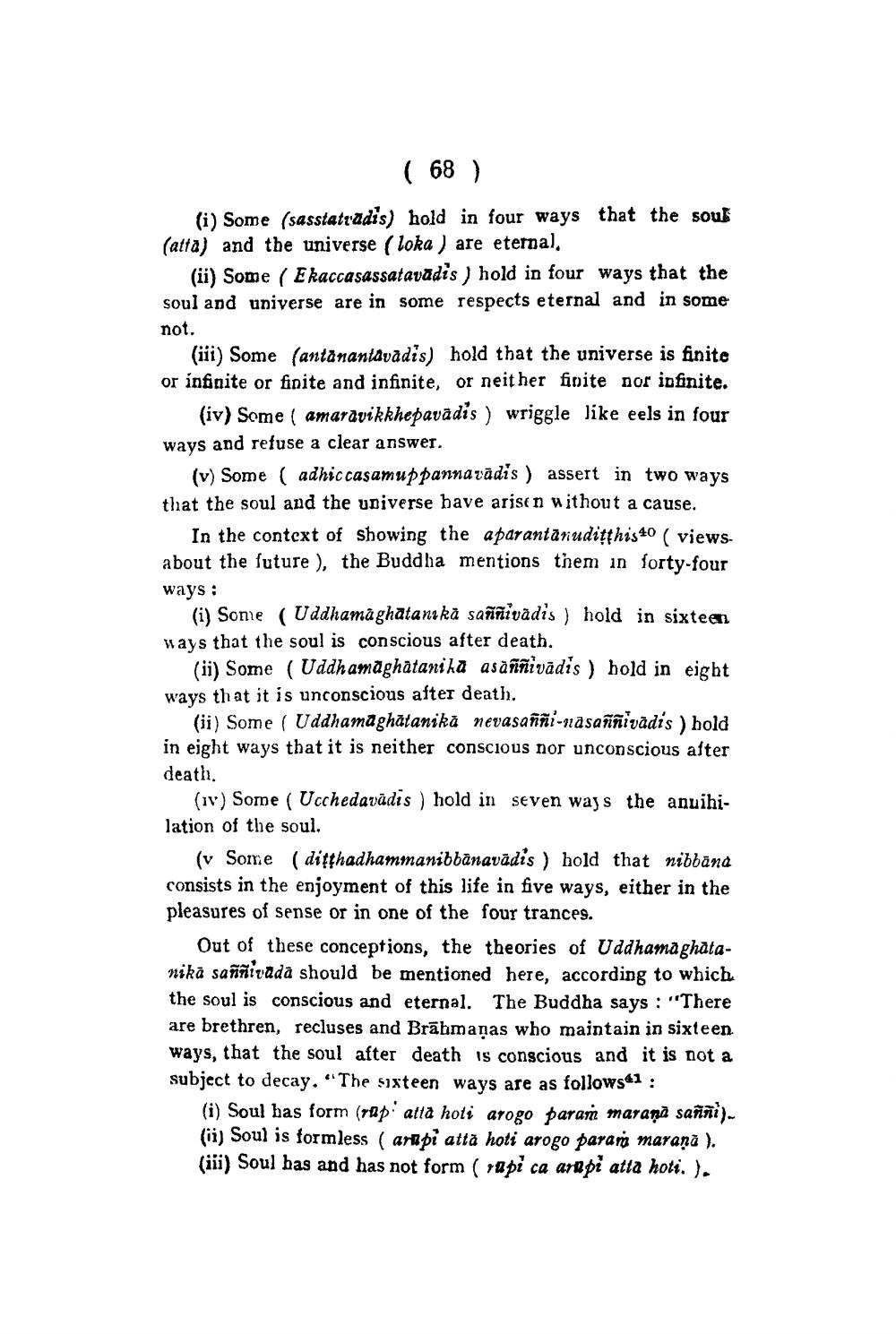________________
( 68 )
(i) Some (sasstatradis) hold in four ways that the soul (atta) and the universe (loka) are eternal,
(ii) Some (Ekaccasassatavādis) hold in four ways that the soul and universe are in some respects eternal and in some
not.
(iii) Some (antanantavadis) hold that the universe is finite or infinite or finite and infinite, or neither finite nor infinite. (iv) Some (amaravikkhepavadis) wriggle like eels in four ways and refuse a clear answer.
(v) Some (adhic casamuppannavādis) assert in two ways that the soul and the universe have arisen without a cause.
In the context of showing the aparantanudiṭṭhis 40 ( viewsabout the future), the Buddha mentions them in forty-four ways:
(i) Some (Uddhamāghātanıkā saññivādis) hold in sixteen ways that the soul is conscious after death.
(ii) Some (Uddhamaghatanika asaññivādis) hold in eight ways that it is unconscious after death.
(ii) Some ( Uddhamāghātanikā nevasaññi-nasaññīvādis ) hold in eight ways that it is neither conscious nor unconscious after death.
(iv) Some (Ucchedavadis) hold in seven ways the anuihilation of the soul.
(v Some (ditthadhammanibbānavādis) hold that nibbāna consists in the enjoyment of this life in five ways, either in the pleasures of sense or in one of the four trances.
Out of these conceptions, the theories of Uddhamaghatanika saññivada should be mentioned here, according to which the soul is conscious and eternal. The Buddha says: "There are brethren, recluses and Brahmaṇas who maintain in sixteen ways, that the soul after death is conscious and it is not a subject to decay. "The sixteen ways are as follows41:
(i) Soul has form (rap atta hoti arogo param marana saññi). (ii) Soul is formless ( arupi attà hoti arogo param maraṇā ). (iii) Soul has and has not form ( rapi ca arapi atta hoti. ).




